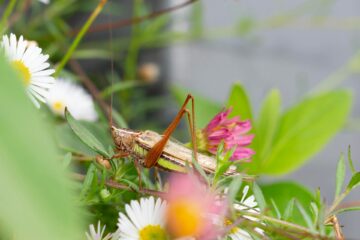Gardening is a rewarding and fulfilling hobby that allows individuals to connect with nature and cultivate a beautiful outdoor space. However, even the most seasoned gardeners can fall prey to common mistakes that hinder the growth and health of their plants. In this comprehensive guide, we will explore 10 of the most prevalent gardening mistakes and provide practical solutions to help readers troubleshoot issues and grow more confidently.
1. Overwatering
One of the most common mistakes gardeners make is overwatering their plants. Excessive watering can lead to root rot, nutrient leaching, and other issues. To avoid this, always check the moisture level of the soil before watering and ensure proper drainage by using well-draining soil and containers.
2. Neglecting Soil Health
Healthy soil is the foundation of a successful garden. Many gardeners overlook the importance of soil health, leading to poor plant growth and nutrient deficiencies. Test your soil regularly, amend it with organic matter, and ensure a balanced pH level to promote optimal plant growth.
3. Planting at the Wrong Time
Planting at the wrong time of year can hinder the success of your garden. Be mindful of your plant’s specific growing season and climate requirements, and plant accordingly. Research the ideal planting times for each variety to maximize growth and yield.
4. Ignoring Sunlight Requirements
Plants have varying sunlight requirements, with some needing full sun exposure while others thrive in partial shade. Failure to provide adequate sunlight can result in stunted growth and poor flowering. Identify the sunlight needs of your plants and position them accordingly in your garden. The requirements will normally be on the back of the plant label, use this handy requirement guide to help you understand what the icons mean.
5. Using the Wrong Tools
Using the wrong gardening tools can make tasks more challenging and diminish the outcome of your efforts. Invest in high-quality tools suited to the tasks you perform most frequently, such as pruning shears, a trowel, and a watering can. Proper tools make gardening more efficient and enjoyable.
6. Not Pruning or Deadheading
Pruning and deadheading are essential tasks that promote healthy plant growth and encourage flowering. Neglecting these practices can lead to overcrowding, reduced air circulation, and decreased bloom production. Regularly prune dead or damaged branches and deadhead spent flowers to maintain plant health.
7. Failing to Mulch
Mulching is a simple yet effective practice that provides numerous benefits to your garden. Mulch helps retain soil moisture, suppresses weeds, regulates soil temperature, and improves soil health. Apply a layer of organic mulch around your plants to reap these advantages and protect your garden from environmental stressors.
8. Not Monitoring Pests and Diseases
Pests and diseases can wreak havoc on your garden if left unchecked. This is one of the most common gardening mistakes. Monitor your plants regularly for signs of pest infestations or disease symptoms. Implement integrated pest management strategies, such as using beneficial insects and organic pesticides, to control pests and maintain a healthy garden ecosystem.
9. Overfertilizing
While fertilizing provides essential nutrients to your plants, overdoing it can have detrimental effects. Excessive fertilizer application can lead to nutrient burn, root damage, and environmental pollution. Follow recommended dosages and schedules for fertilizing, and opt for slow-release organic fertilizers to promote balanced plant nutrition.
10. Neglecting Regular Maintenance
Consistent maintenance is key to a thriving garden. Neglecting routine tasks such as weeding, watering, and monitoring plant health can result in an unkempt and unhealthy garden. Establish a maintenance routine that suits your garden’s needs and dedicate time each week to caring for your plants.
By recognizing and addressing these common gardening mistakes, readers can enhance their gardening skills, troubleshoot issues effectively, and cultivate a more successful and flourishing garden. With a mindful approach, a bit of knowledge, and a love for gardening, individuals can grow confidently and enjoy the bountiful rewards of their labor amidst nature’s beauty.
Keep on top of your gardening with our free online journal
Our free online tool allows you to organise your ideas and garden plans and help you be as efficient as possible in the garden.
Sign up now

